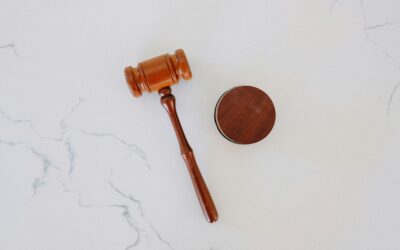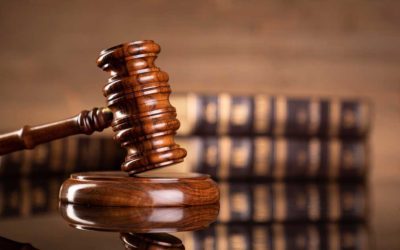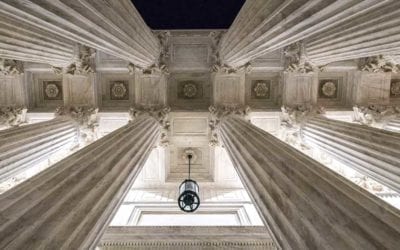What is Chapter 13 Bankruptcy?
Chapter 13 bankruptcy allows individuals that have a regular income to develop a plan that will enable them to repay part–or all–of their debts. The plan will lay out the installment payments the debtor must pay to creditors over a period that usually runs between three and five years. While the plan is in effect, creditors are barred from pursuing any collection efforts against the debtor. After the Chapter 13 payment plan has been completed, most unsecured debts (debts for which the debtor has given no collateral) will be discharged by the Bankruptcy Court.
Who is eligible for Chapter 13 bankruptcy?
Any individual with a regular income may file Chapter 13 bankruptcy so long as his or her unsecured debts are less than $419,275 and the debtor’s secured debts are less than $1,257,850. Individuals who are self-employed, or those operating an unincorporated business, may also take advantage of Chapter 13 bankruptcy. However, corporations and partnerships are not permitted to file for bankruptcy under Chapter 13.
What is the difference between Chapter 7 and Chapter 13 bankruptcy?
Chapter 7 bankruptcy is often referred to as “liquidation bankruptcy” because the bankruptcy trustee may seize the non-exempt assets of a debtor and sell them to repay creditors. Debtors who file for Chapter 13 bankruptcy are often able to save their home from foreclosure because the filing stops foreclosure proceedings and gives the debtor an opportunity to make any delinquent payments. However, the debtor must make any mortgage payments due when the Chapter 13 plan is in effect.
Chapter 13 debtors will also have the opportunity to reschedule any non-mortgage secured debt (debt secured by collateral, such as a lien) and repay it over the course of the Chapter 13 plan. Finally, Chapter 13 allows debtors to make their plan payments to the Chapter 13 trustee to distribute to creditors, sparing them from direct contact with their creditors while the plan is in effect.
How do you file for Chapter 13 bankruptcy?
Chapter 13 bankruptcy proceedings begin with the debtor filing a bankruptcy petition with the U.S. Bankruptcy Court. A repayment plan must be filed for the court’s approval with their Chapter 13 petition or within 14 days of filing. The plan is usually worked out by the debtors and their bankruptcy attorney and may offer creditors less than the total amount they are due. But it must provide for fixed regular payments to the Chapter 13 trustee, usually every two weeks or monthly. The bankruptcy trustee distributes funds to the creditors based on the terms laid out in the plan.
The Chapter 13 plan usually groups the claims against the debtor into three categories: priority, secured, and unsecured. Priority claims are those that have been granted special status under bankruptcy law, including most taxes and the costs of the bankruptcy proceeding, and must be repaid in full. Secured claims are those where the creditor may seize specified collateral if the debtor defaults on his or her payment obligations and usually need to be repaid over the course of the plan if the debtor wishes to keep the collateral. The debtor need not fully repay the unsecured creditors so long as he or she pays all disposable income to the bankruptcy trustee under the plan and the unsecured creditors are paid at least as much as they would receive had the debtor liquidated under Chapter 7.
What is the meeting of the creditors?
After the Chapter 13 debtor has filed a repayment plan with the court, the bankruptcy trustee will conduct a meeting of the creditors. The debtor must attend the meeting and will be required to answer questions from both the trustee and creditors under oath. Any issues with the debtor’s repayment plan are usually resolved during the meeting or shortly afterward.
What is a Chapter 13 plan confirmation hearing?
After the creditors’ meeting, the Bankruptcy Court judge must conduct a hearing to determine whether the Chapter 13 plan submitted by the debtor is feasible and meets the plan requirements laid out in the U.S. Bankruptcy Code. Creditors will be given notice of the hearing and will have the opportunity to object to the plan. If the court confirms the debtor’s Chapter 13 plan, the trustee will begin distributing funds under the plan’s terms. If it is not confirmed, the debtor will have the opportunity to submit a modified plan or may seek to convert the Chapter 13 proceeding into a Chapter 7 liquidation bankruptcy. Should the judge not confirm the plan or dismisses the case, the trustee will return any funds collected to the debtor, minus any court costs.
What happens after the Chapter 13 plan has been completed?
The Bankruptcy Court will issue a discharge order after the debtor has made all of the required payments under the Chapter 13 plan. The order releases the debtor from all of the debts provided for under it, with a few exceptions. Those creditors who have received payment under the plan are no longer allowed to undertake actions to collect the discharged debts.
What debts may not be discharged?
There are some debts may not be discharged through Chapter 13 bankruptcy. Those include the following:
- Debts for alimony or child support;
- Certain taxes;
- Most student loan debts;
- Debts that resulted from a personal injury or death that resulted from the debtor’s driving while intoxicated; and
- Restitution or criminal fines that are included in a criminal sentence.
Additional questions about Chapter 13 Bankruptcy?
The bankruptcy attorneys with the law firm of Thomas H. Curran Associates have decades of experience and can answer any additional questions you may have about Chapter 13 bankruptcy and whether it is the correct choice for your current financial situation. Our lawyers help clients devise a Chapter 13 plan, prepare and file all of the necessary documentation with the Bankruptcy Court, attend the meeting of the creditors, represent the client during the confirmation hearing, and assist with resolving any post-confirmation issues. With their extensive bankruptcy experience, our attorneys can also help debtors address any unforeseen problems that may arise during the course of their Chapter 13 case.
Bankruptcy Practice Results
Recent successful cases handled by the attorneys from Thomas H. Curran Associates. Find more here »
Thomas H. Curran Associates Secures Appellate Victory as Massachusetts Supreme Judicial Court Denies Appellant’s Attempt to Shortcut Ordinary Appellate Review
Thomas H. Curran Associates recently obtained an appellate victory in the Massachusetts Supreme Judicial Court on May 26, 2023, in the...
Thomas H. Curran Associates win is Affirmed in Florida, U.S. District Court – Client Wins Attorneys Fees
Law: Federal Rule of Civil Procedure 37(a)(5) Case: Premier Capital, LLC v. Larry Bryan (AP) Underlying Bankruptcy Case: In re Larry Bryan...
The Second Circuit Affirms Bankruptcy Fraud Judgment Obtained by Thomas H. Curran Associates, Recognizing the Continuous Concealment Doctrine
Law: Continuous concealment doctrine, 11 USC § 727(a)(2)(A), In re Olivier, 819 F.2d 550 (5th Cir. 1987); In re Boyer, 328 F. App’x 711,...
Thomas H. Curran Associates prevails on barring discharge due to fraud by debtor
Thomas H. Curran Associates recently secured a victory on behalf of an institutional asset manager, where the Bankruptcy Court for the...
Thomas H. Curran Associates prevails on post-trial motions and obtains full security for $23 million dollar financial fraud judgment on behalf of chapter 7 bankruptcy trustee
On February 8, 2022, the United States District Court for the District of Connecticut (Meyer, J.) enter its Order denying defendant Gayle...
Thomas H. Curran Associates obtains appellate victory for client affirming multi-million dollar Massachusetts Superior Court Contempt Judgment against non-party to Injunction Orders
On June 21, 2021, the Massachusetts Appeals Court affirmed the civil contempt Judgment of the Suffolk Superior Court (Giles, J.) awarding...
Thomas H. Curran Associates Secures Appellate Victory as Massachusetts Supreme Judicial Court Denies Appellant’s Attempt to Shortcut Ordinary Appellate Review
Thomas H. Curran Associates recently obtained an appellate victory in the Massachusetts Supreme Judicial Court on May 26, 2023, in the...
Thomas H. Curran Associates win is Affirmed in Florida, U.S. District Court – Client Wins Attorneys Fees
Law: Federal Rule of Civil Procedure 37(a)(5) Case: Premier Capital, LLC v. Larry Bryan (AP) Underlying Bankruptcy Case: In re Larry Bryan...
The Second Circuit Affirms Bankruptcy Fraud Judgment Obtained by Thomas H. Curran Associates, Recognizing the Continuous Concealment Doctrine
Law: Continuous concealment doctrine, 11 USC § 727(a)(2)(A), In re Olivier, 819 F.2d 550 (5th Cir. 1987); In re Boyer, 328 F. App’x 711,...
Thomas H. Curran Associates prevails on barring discharge due to fraud by debtor
Thomas H. Curran Associates recently secured a victory on behalf of an institutional asset manager, where the Bankruptcy Court for the...
Thomas H. Curran Associates Secures Appellate Victory as Massachusetts Supreme Judicial Court Denies Appellant’s Attempt to Shortcut Ordinary Appellate Review
Thomas H. Curran Associates recently obtained an appellate victory in the Massachusetts Supreme Judicial Court on May 26, 2023, in the...
Thomas H. Curran Associates win is Affirmed in Florida, U.S. District Court – Client Wins Attorneys Fees
Law: Federal Rule of Civil Procedure 37(a)(5) Case: Premier Capital, LLC v. Larry Bryan (AP) Underlying Bankruptcy Case: In re Larry Bryan...
The Second Circuit Affirms Bankruptcy Fraud Judgment Obtained by Thomas H. Curran Associates, Recognizing the Continuous Concealment Doctrine
Law: Continuous concealment doctrine, 11 USC § 727(a)(2)(A), In re Olivier, 819 F.2d 550 (5th Cir. 1987); In re Boyer, 328 F. App’x 711,...
Bankruptcy Areas of Expertise
- Bankruptcy Litigation
- Bankruptcy Trustee Representation
- Avoidance & Recovery Actions
- Chapter 11 Trustees & Examiners
- Discharge Litigation
- Bankruptcy Fraud Investigations
- Cross Border Foreign Litigation
- 363 Bankruptcy Sales
- Bankruptcy Preference Actions
- Involuntary Bankruptcy
- Chapter 11/13 Plan Objections
Bankruptcy News
Evidence of Intent to ‘Hinder’ Wasn’t Sufficient to Deny Discharge, District Judge Says
In the recent case Wylie v. Miller, 22-10952 (S.D. Mich. March 29, 2024) [1] , a bankruptcy court’s decision to deny a couple’s discharge...
Creditor’s Don’t Receive Estate Assets Recovered After the Last Chapter 13 Plan Payment
In In re McCrorey, 18-00696 (Bankr. D. Idaho Jan. 26, 2024) [1] , Chief Bankruptcy Judge Noah G. Hillen of Boise, Idaho, held that if a...
Electric Scooter Company Bird files for Bankruptcy | CNBC
Bird, the popular electric scooter rental company filed for Chapter 11 bankruptcy protection in Florida Federal Court last month. Bird's...
Nearly 20-year-old Dallas restaurant chain files for Ch. 7 bankruptcy | WFAA-TV
The Dallas-based company Buzzbrews Inc. filed for Chapter 7 bankruptcy protection lasat month in the U.S. Bankruptcy Court for the...
A Refinanced Consumer Loan Might Not Be a ‘Consumer Debt,’ Ninth Circuit Says
In Centennial Bank v. Kane (In re Kane), 22-16282 (9th Cir. Nov. 15, 2023), the debtor had refinanced four preexisting loans. [1] The...
Bankruptcy Code Overrides Contrary Delaware Corporate Law, Judge Lopez Says
In In re Envision Healthcare Corp., 23-90342 (Bankr. S.D. Tx. Sec. 12, 2023), Bankruptcy Judge Christopher M. Lopez held that Delaware law...
Evidence of Intent to ‘Hinder’ Wasn’t Sufficient to Deny Discharge, District Judge Says
In the recent case Wylie v. Miller, 22-10952 (S.D. Mich. March 29, 2024) [1] , a bankruptcy court’s decision to deny a couple’s discharge...
Creditor’s Don’t Receive Estate Assets Recovered After the Last Chapter 13 Plan Payment
In In re McCrorey, 18-00696 (Bankr. D. Idaho Jan. 26, 2024) [1] , Chief Bankruptcy Judge Noah G. Hillen of Boise, Idaho, held that if a...
Electric Scooter Company Bird files for Bankruptcy | CNBC
Bird, the popular electric scooter rental company filed for Chapter 11 bankruptcy protection in Florida Federal Court last month. Bird's...
Nearly 20-year-old Dallas restaurant chain files for Ch. 7 bankruptcy | WFAA-TV
The Dallas-based company Buzzbrews Inc. filed for Chapter 7 bankruptcy protection lasat month in the U.S. Bankruptcy Court for the...
Evidence of Intent to ‘Hinder’ Wasn’t Sufficient to Deny Discharge, District Judge Says
In the recent case Wylie v. Miller, 22-10952 (S.D. Mich. March 29, 2024) [1] , a bankruptcy court’s decision to deny a couple’s discharge...
Creditor’s Don’t Receive Estate Assets Recovered After the Last Chapter 13 Plan Payment
In In re McCrorey, 18-00696 (Bankr. D. Idaho Jan. 26, 2024) [1] , Chief Bankruptcy Judge Noah G. Hillen of Boise, Idaho, held that if a...
Electric Scooter Company Bird files for Bankruptcy | CNBC
Bird, the popular electric scooter rental company filed for Chapter 11 bankruptcy protection in Florida Federal Court last month. Bird's...
Contact Us
Are You In Need of Legal Counsel for a Bankruptcy Matter, Business Transaction, or Commercial Litigation?
Contact our team today.
Call us at (617) 207-8670 or use the quick contact form below.
Austin Office
111 Congress Avenue
Suite 500
Austin, TX 78701
Boston Office
Ten Post Office Square
Suite 800 South
Boston, MA 02109
New York Office
1740 Broadway
15th Floor
New York, NY 10019
London Office
The Leadenhall Building
Level 30
122 Leadenhall Street
London EC3V 4AB
Tags: what is chapter 13 bankruptcy how to file for bankruptcy chapter 13 filing personal bankruptcy chapter 13





